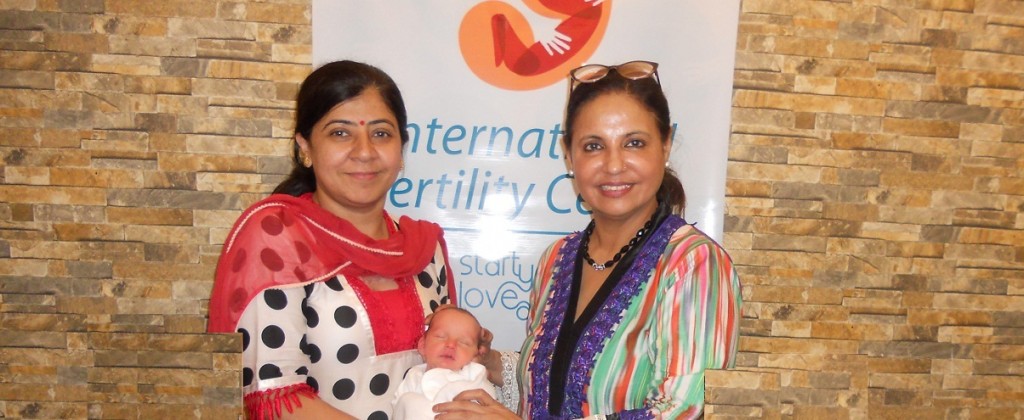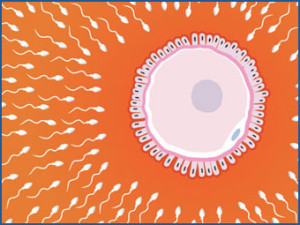Egg Donor in India helps Infertile Women to become Pregnant
 Our Egg Donor Program at IFC IVF Clinics in India allows Intended Parents to choose a donor with the physical and mental characteristics that go with their own. The eggs from the donor are then fertilized with the sperm given by the partner or a donor and moved into either the intended mother or one of our Surrogate Mothers. In addition, database of our Egg Donor is among the most comprehensive in the industry as we confirm our egg donors’ credentials, our egg donors’ availability each month, and we get rid of those egg donors that are no longer part of our program. Sure! Our egg donor database is about quality- not quantity.
Our Egg Donor Program at IFC IVF Clinics in India allows Intended Parents to choose a donor with the physical and mental characteristics that go with their own. The eggs from the donor are then fertilized with the sperm given by the partner or a donor and moved into either the intended mother or one of our Surrogate Mothers. In addition, database of our Egg Donor is among the most comprehensive in the industry as we confirm our egg donors’ credentials, our egg donors’ availability each month, and we get rid of those egg donors that are no longer part of our program. Sure! Our egg donor database is about quality- not quantity.
Women who are not capable to generate eggs of their own, hold a genetic disorder or have poor egg quality are expectant to walk around the option of the egg (oocyte) donation program at GestationalSurrogacyIndia. To be considered as a recipient for donor eggs, you must have a normal uterus and be 50 years of age or younger.
Patients of advanced reproductive age are the most common recipients of donor eggs and are able to conquer the age barrier with the use of a donated egg. Patients bearing in vitro fertilization with a donated egg often have the high success rates as the egg being used is from a young and the healthy donor.
There are two categories of Egg Donors – anonymous and known. Anonymous donors are not allowable to meet you, the recipient, and cannot recognize whether or not a pregnancy happened from the cycle. The known donors are often related to the recipient, most often a sister, or are a compassionate friend of the couple. In known donor situations, it is recommended that all parties concerned sign a legal contract drawing details of the egg donation.
Egg Donor Options
Egg Donor Options
-
Option 1: Complete Egg Donor Cycle
This choice makes sure that you receive all the eggs from your selected donor. This capitalizes on your probability of success and enhances your chance of attaining ensuing pregnancies employing frozen embryos which are most likely to be caused by this option.
- Option 2: Shared Egg Donor Cycle

This option entails sharing eggs from your donor with other parents. The shared egg donor cycle results in receiving between six and ten of the eggs which she produces. If the donor generates fewer than 12 mature eggs you will get all the eggs. If 12 or more mature eggs are available, then you will receive half the eggs, and the other half will be frozen for use by other recipient couples. This option lessens donor-related costs but is less likely to cause “Extra” embryos for future use.
- Option 3: Frozen Eggs
Sometimes, we freeze eggs which have been formerly harvested at GestationalSurrogacyIndia, and then store up them for future use. These eggs are available for use any time and do not need the synchronization that is constantly essential when a donor and a carrier are enduring the process in equivalent.
-
Option 4: Embryo Adoption
Infrequently, when some people are over with their family building and do not desire to throw away their “Extra” embryos, they decide to give their extra embryos to your reproductive specialists to provide to others. The pros and cons to each of these options will be discovered once you commence your journey with us. Your reproductive specialist’s physician, Egg Donor Nurse Coordinator and GestationalSurrogacyIndia’s financial coordinator will facilitate you to make a decision on which option best gets together your needs and goals.
Screening for Recipients
Screening for Recipients
The decision to conceive a child through the use of a donated egg can be very difficult for a couple. Therefore, our physician will pass on you and your husband to a psychologist for counseling and emotional support. Also, it is important to discuss issues related to non-biologic parenting, past fertility problems, parenting at an older age and positive and negative aspects of disclosure to potential offspring.
If you are 43 years of age or older, a physical exam must be executed by an internist to exclude any potential risks to pregnancy, such as diabetes and heart disease. If you do not presently have an internist, the physician at GestationalSurrogacyIndia will refer you to one.
Both you and your husband must have blood work done to screen for diseases and conditions that could have an effect on your pregnancy including Human Immunodeficiency Virus, hepatitis C, hepatitis B surface antigen, RPR, blood type RH and rubella immunity. Your husband must also present a semen sample just about four weeks prior to the transfer cycle for semen analysis, strict morphology and sperm survival testing.
- The Method
- Process for the Egg Donor
Who are Candidates to use Donor Eggs?
Any woman desiring to get pregnant has the option of pursuing donor eggs. Unluckily, the majority of women who make use of donor eggs have considerably lessened egg quality. Women with the following conditions are the typical candidates for donor eggs such as:- Early menopause or premature ovarian failure
- Very poor egg quality
- History of genetic disease
- Ovaries do not respond to stimulation
- Hormonal imbalance
- Over the age of 40
Process for selecting an Egg Donor
The first step is to make a decision that the characteristics you prefer in an egg donor. The egg donor could be a family member, friend, or someone anonymous. Any possible egg donor should be screened as follows:- History of birth defects
- Inherited diseases
- Medical and social history
- Physical examination
- Psychological screening
- Testing for sexually transmitted diseases
 Gestational Surrogacy Gestational Surrogacy India: A Hub of Surrogate Mother Delhi
Gestational Surrogacy Gestational Surrogacy India: A Hub of Surrogate Mother Delhi

